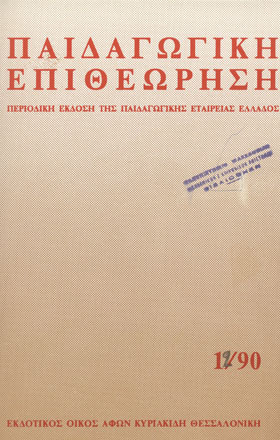Ανάγνωση και γραφή στα πεντέμισι ή εξίμισι χρόνια;: ο ρόλος της χρονολογικής ηλικίας στην εκμάθηση του γραπτού λόγου
Main Article Content
Περίληψη
The objectives of this study were on the one hand to find out whether the school entrants' chronological age (5, 6 vs. 6.6yrs) is closely related to the degree of reading and spelling development achieved by the end of the first grade and on the other hand to specify whether the age factor is reflected on the use of spelling-sound information in reading and spelling of Greek words. For this, two groups of subjects (all non-readers) were formed at the end of the Kindergarten. A group of «younger» children (x — 5,8 yrs) and a group of «older» children (x = 6.4 yrs). The two groups were matched in terms of intelligence, linguistic awareness and socio-cultural environment. All subjects (N - 82) were tested in word (regular and exception) and non-word reading and spelling at the end of the first grade. The main findings were: First that the subject's chronological age was not related to the level of reading and spelling development achieved. Second, that the chronological age was not related to the degree of the subject's employment of spelling-sound information in reading and spelling. Third, that while those subjects’s spelling was relying mainly on the use of sound-spelling information, this kind of information was necessary but none sufficient for their reading process.
Article Details
Τεύχος
Ενότητα
Άρθρα
